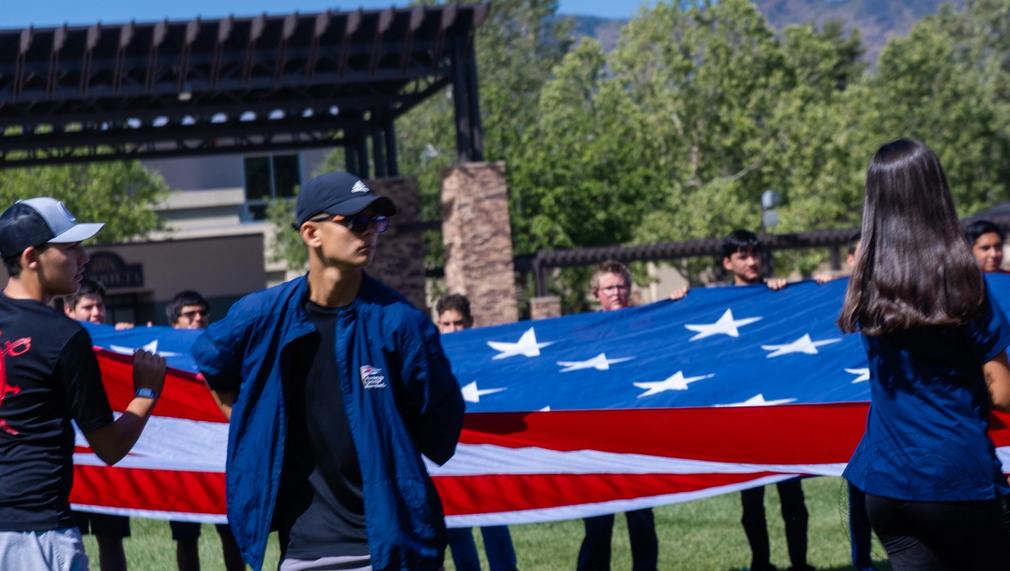VSSN Pathways: Reentry to Purpose Program
VSSN's Pathways: Reentry to Purpose empowers justice-involved veterans and military-service-connected young adults (ages 17-26) to build meaningful careers in healthcare as Community Health Workers. Through trauma-informed stabilization, accredited training, paid internships, and job placement, VSSN guides participants from reentry to long-term employment, reducing recidivism while strengthening LA’s frontline health workforce.

What is the primary issue area that your application will impact?
Youth economic advancement
In which areas of Los Angeles will you be directly working?
Central LA East LA South LA San Gabriel Valley West LA San Fernando Valley South Bay Gateway Cities Long Beach Antelope Valley
In what stage of innovation is this project, program, or initiative?
Pilot or new project, program, or initiative (testing or implementing a new idea)
What is your understanding of the issue that you are seeking to address?
Justice-involved youth ages 17–26 in L.A. County—especially those from veteran-connected families—face compounding barriers: trauma, disrupted education, unstable housing, and limited job pathways. Many are dependents of veterans experiencing PTSD, incarceration, or substance use, placing them at higher risk for justice involvement. In 2023, 94% of youth in L.A. juvenile halls were youth of color, and 55% were over age 17—often detained for months pre-trial. L.A. is also home to over 232,000 veterans, many of whom experience mental health crises; 25% are at risk for suicide. These family struggles deeply affect dependents, fueling cycles of instability and disconnection. VSSN addresses this by providing trauma-informed care, in-house behavioral health services, CHW training, and job placement—empowering young adults to break cycles of incarceration, serve their communities, and access meaningful healthcare careers.
Describe the project, program, or initiative this grant will support to address the issue.
This grant will support Pathways: Reentry to Purpose, a trauma-informed initiative by VSSN that addresses the urgent need for justice-involved, veteran-connected young adults (ages 17–26) to access stabilization, healing, and workforce opportunities. These individuals often carry the compounded effects of family trauma, parental military service-related challenges (such as PTSD, incarceration, or suicide), and systemic disconnection from education and employment. The program begins with in-house stabilization—housing navigation, trauma therapy, behavioral health counseling, and legal support. Participants then complete a 90–120-hour accredited Community Health Worker (CHW) training program, equipping them with skills in public health, care coordination, and veteran cultural competency. After training, participants receive paid internships, job placement at healthcare facilities, and 12 months of post-employment support to ensure retention and personal growth. This initiative restores purpose, reduces recidivism, and fills critical healthcare workforce gaps with leaders who reflect the lived experience of the communities they serve.
Describe how Los Angeles County will be different if your work is successful.
If our work is successful, Los Angeles County will see a measurable reduction in recidivism among justice-involved, veteran-connected young adults through sustained economic opportunity. Participants will complete CHW certification, secure paid internships, and transition into living-wage healthcare jobs—with VSSN tracking employment rates, income growth, and job retention at 6 and 12 months. By stabilizing individuals through in-house trauma-informed care and behavioral health support, we aim to reduce reoffense rates by at least 40% compared to county averages. Success means fewer people returning to incarceration, more families supported by stable income and mental health access, and more diverse, lived-experience-informed professionals strengthening LA’s healthcare workforce. Over time, the county will benefit from reduced system costs, improved community health, and a growing peer-led network of young adults who’ve transformed their lives—and now help others do the same.
Approximately how many people will be impacted by this project, program, or initiative?
Direct Impact: 60
Indirect Impact: 3,000